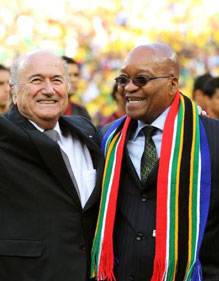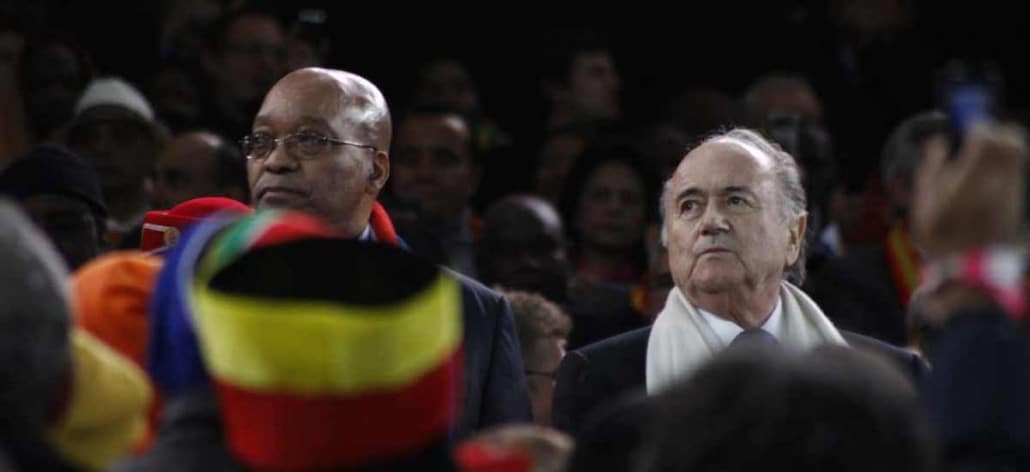
On the same day that the biggest scandal rocked the world’s largest sporting body, Zuma turned a few moments of his budget vote reply in Parliament into something of a comedy show. Mocking opposition party members for what he called a “poverty of politics”, the president said these MPs often interrupted proceedings in Parliament to raise issues of no substance.
“That is the problem of parties that suffer from poverty of politics,” he said. “They have no substantial political issues to raise in Parliament, that is the problem.
“Anything that comes, they jump onto it and (it) becomes a slogan.” While several MPs were in stitches in response to these comments, social media commentators were not entirely impressed. The frustrations of many Twitter users stemmed from Zuma not seeming to take the same issues in question – such as the costs of security upgrades at his private Nkandla home – seriously enough to engage MPs on them.
Earlier in the year, the opening of Parliament was marked by incidents of violence after members of the Economic Freedom Fighters were forcibly removed from the National Assembly, having earlier started chanting “pay back the money”. This was in reference to monies that public protector Thuli Madonsela recommended be paid back by Zuma for the renovations to Nkandla through which his family unfairly benefited.
Last Wednesday, hours before the report into the validity of Madonsela’s findings was to be released by Police Minister Nathi Nhleko, Zuma positioned himself as a non-caring ruler who cannot be bothered to take his peers in Parliament seriously enough. To many South Africans, he was sending the message that he is above reproach and accountability and thus did not owe anyone explanations.
Then, as Fifa president Sepp Blatter approached a podium to speak prior to the launch of the organisation’s 65th congress in Zurich on Thursday afternoon, television viewers across the world waited anxiously for his official response to the corruption scandal rocking his organisation.
American investigators had arrested 14 senior officials of Fifa the previous day on fraud, money laundering and racketeering charges. That Thursday marked the long-planned congress where members of national federations would vote for Fifa president, provided a juicy twist to the situation.
But Blatter disappointingly took a self-serving position of exonerating himself as leader of Fifa, a move that only served to earn him more criticism from the public, as evident across the world’s social media. “I am not saying it was a coincidence. But I do have a small question mark… the guilty ones are individuals, not the whole organisation,” he insisted, calling for greater action by regional confederations and national associations “to put Fifa on the right track.”
“I know many people hold me ultimately responsible for the actions and reputation of the global football community, whether it’s a decision for the hosting of the world cup or a corruption scandal. We, or I, cannot monitor everyone all of the time (sic). If people want to do wrong, they will also try to hide it.”
The 79-year-old has been at the helm of the organisation since 1998, having served four terms. He seeks a new term and has promised to fight corruption across the regional federations of the body.
Unlike in previous congress voting sessions prior to the current one, presidential candidates will this time round be expected to speak for 15 minutes each prior to the voting to convince members of their intentions for the office.
Blatter’s speech promised better leadership in the fight against corruption, something to which many in the general public would probably say ‘too little, too late.’
“We need a strong leader, an experienced leader. A leader that knows all the ins and out of the situations. We need to work with our political partners. Thank you, and I hope that I will be able to be with you in an hour or two,” said Blatter before leaving the 209 association members to vote.

